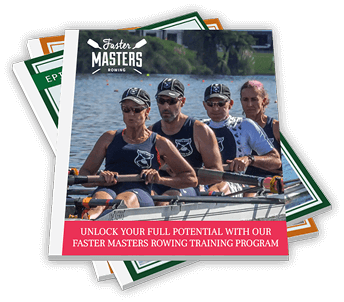Dave Houchin is researching masters rowers and intrinsic motivation. What makes us what to do what we do?
Timestamps
01:00 Dave started rowing 18 months ago after retirement at Ancholme Rowing Club. If you row and race, you accept that motivation is part of the deal. Masters are the most diverse population in our sport.
02:00 Masters' diverse motivations
The approach is different from juniors - coached in a different way, explanations and buy-in are different. He wants to know more about masters' motivators and the positive and negative factors affecting your enthusiasm for rowing.
There is little academic research into masters' motivation. Dave is leading the charge. With masters there's no obligation to show up and what you put into rowing is up to you. So the coach needs to be flexible. It's harder to set the learning environment and atmosphere for masters when you are coaching.
Motivation is about how we move into action. Dave believes masters motivation needs a different approach.
06:00 Self-determination theory
This assumes we have 3 psychological needs - competence, relatedness and autonomy.
Dave is researching if the balance of these three alters as we get older. Autonomy is about doing things because we want to do them - self-motivation. How can coaches best meet these autonomy needs?
Help Dave's research with a 3 minute survey. He is gathering survey responses here [12 November 2023 deadline].
Coach Mastermind Group - join our monthly meeting.
Coaching very senior executives is interesting - why are they coming to rowing? How do they take direction from a rowing coach?
Relativity - people are very experienced in what they do with skills developed over decades.
Relatedness is low when you are new to a club.
Autonomy - you hand this over to the coach to guide your learning.
Dealing with these people, most have enough expertise to say what they want, despite being new to rowing.
10:30 Sports coaching is very controlling - this doesn't work for masters nor is what they usually want.
Join The Older Athlete and Aging Webinar 2023
12:30 Executive coach versus sports coach
How to find ways to improve your own coaching delivery.
A shift in emphasis - less telling and directing and more asking questions and listening. A coach should probe and explore with questions to get to the core of what the person wants. Sports coaching courses often include athlete-centred coaching information. Give the athlete more responsibility - it makes it easier for the coach.
17:30 an executive coach never takes anything at face value. They are challenging for participants. What does it look like to set out to win the World Rowing Masters Championships? What do you need from me to achieve that? Let the other person come up with the plan and commit to their process.
This is internal commitment. Intrinsic versus extrinsic motivation.
20:00 Do your autonomy needs (volition and control) need change as we get older?
Dave's research is about do these things apply equally to the whole population. The key elements are your age, number of years rowing, the frequency of coaching you get.
22:00 Key takeaways for us to reflect on
Make it a 2-way process with a contract at the start of the session. Challenge your athlete but give them a high degree of choice and responsibility. Give a rationale for what you are trying to achieve and how it relates to what the athlete is trying to achieve. Create shared responsibility by giving more responsibility to the athlete so they're more likely to commit.
Many coaches at a club level are there because they want to get athletes to where they want to be. The coaches need motivation too - so as athletes can you help the coach feel motivated working with you - a shared participation?

